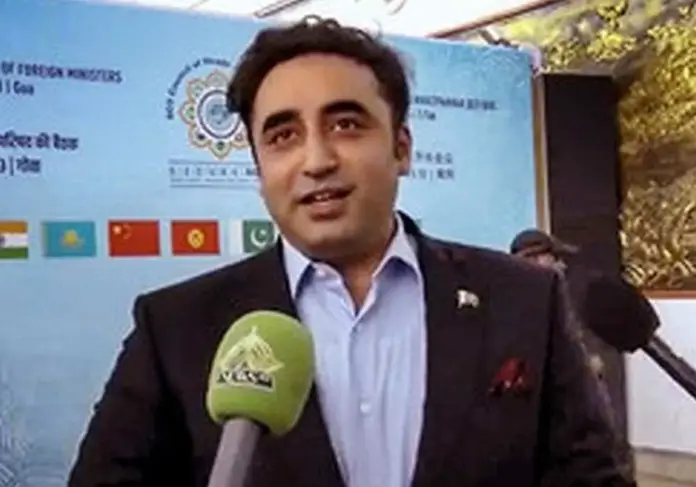When Foreign Minister Bilawal Bhutto Zardari addressed the Shanghai Cooperation Organization’s (SCO) summit of the Council of Foreign Ministers (CFM) on Friday, he made a statement urging member nations of the SCO to refrain from using terrorism as a diplomatic tool. While this seemed like a firm stance, it was actually a deflection from the smart diplomatic move made by his Indian counterpart, Dr. Subrahmanyam Jaishankar-JS, during his own speech.
Bilawal Bhutto Zardari remained unaffected by the smear campaign run by hardliners on both sides of the border and was unmoved by the provocative statements made by the Indian FM at the summit. His characterization of India’s tactics as a “diplomatic tool” was a subtle form of deep sarcasm. In doing so, he effectively countered the diplomatic maneuver of the more experienced and senior Indian foreign minister.
The events surrounding Bilawal Bhutto Zardari’s visit, from his video message in the car on his way to Goa to the airport arrival, and the refusal of his Indian counterpart to shake hands, followed by uncouth behavior at dinner, were all grueling. The attitude of Indian mainstream media anchors and analysts was also hostile. Instead of presenting facts and objectivity, they made assumptions about Bilawal Bhutto’s gestures and body language, acting more like talented psychologists than anchors or analysts on TV channels.
The majority of them behaved like police officers appointed to identify the accused during an identification parade in a police station. However, Pakistan’s relatively young and less-experienced Foreign Minister, Bilawal Bhutto Zardari, maintained his composure, kept a smile on his face, and stayed focused on the agenda despite the aggressive behavior of the Indian media and the apparent indifference shown by his Indian counterpart. Undoubtedly, BB Zardari made history at the SCO summit.
The provocations made by the Indian FM and the Indian press were interconnected and well-thought-out moves. The Indian government, led by the BJP, expected Pakistan to cancel the FM’s participation in the SCO summit in Goa, India, especially after provocative protests organized by Bharatiya Janata Party (BJP), RSS, and VHP across the country, including the burning of Bilawal Bhutto’s effigies on the streets. When this seemingly smart move failed, the Indian FM approached the edge of impoliteness and tried to incite Bilawal Bhutto Zardari, completely disregarding diplomatic and hosting etiquette. During his speech, Dr. S Jaishankar aimed his final arrow, indirectly targeting Bilawal Bhutto Zardari. Although he didn’t name Pakistan directly, his clues were clear and led to Pakistan.
To evaluate Bilawal Bhutto Zardari’s recent success at the SCO summit in Goa, it is important to consider some key facts about JS. Dr. Subramaniam Jaishankar, a member of Parliament from Gujarat and Narendra Modi’s home state of Ahmedabad, comes from a family with a history of service in the Indian Civil Service during the British era. He joined the Indian Foreign Service in 1977 and served for 35 years. Prior to becoming the FM of India after retiring from the Indian Foreign Service, he served as the Foreign Secretary of India for three years. With his extensive experience, SJ is a seasoned diplomat cum politician. His speech was carefully crafted, using provocative terms such as “cross-border terrorism,” “sponsoring and channelizing terrorism,” and “combating terrorism.” It was like a fish hook intended to provoke BBZ and trap him. It subtly taunted his counterpart and indirectly suggested that India should move away from the “War on Terrorism” era Indirectly, Bilawal Bhutto Zardari’s statement suggested that India should move away from the era of the “War on Terrorism.” He conveyed to his Indian counterpart that India’s diplomatic policy towards Pakistan was relying on terms and glossary that are now obsolete and no longer in practice. The world, including the US, has transitioned beyond the “War on Terrorism” era, and Pakistan has also moved on from the era of “Deep State Policy” or Strategic Depth. This was a subtle reminder that diplomatic approaches should evolve to address the current challenges and foster cooperation rather than perpetuate outdated narratives.







